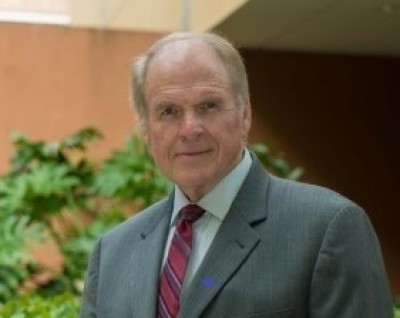Is the end nigh for institutional Christianity?
The end seems nigh for conservative institutional Christianity.
“Catastrophic... seismic... the opening of a Pandora’s Box...”
These were some of the terms used by experts who focus on law and religious liberty as they sought to describe the impact of the Supreme Court’s June 15 “landmark” ruling that now includes “sex” as a factor in hiring and firing, along with “race, religion, and national origin.”

“Today,” said Justice Neil Gorsuch, “we must decide whether an employer can fire someone simply for being homosexual or transgender.” He and a majority of his fellow SCOTUS judges found that basing employment decisions on sex or sexual orientation, including gender identity, is indeed discriminatory, based on Title VII of the 1964 Civil Rights Act.
Princeton jurisprudence professor Robert George called the decision “catastrophic because it will undermine respect for the rule of law.”
Russell Moore, leader of the Southern Baptist Ethics & Religious Liberty Commission, was concerned that precedents would create confusion. The “public meaning of words” changes and the Supreme Court’s decision in 2020 could mean that future legislators “won’t know what they are voting to pass.”
Whatever the complexities and ambiguities of legal language, for many churches and related religious organizations, it will be apostasy or the arena, compromise or the catacombs.
Jesus shocked His followers one day when they were marveling at the mighty edifice of the Jerusalem Temple. But, warned the Lord, the time will come when “not one stone will be left upon another.”
This was unimaginable to the disciples. The Temple was the sanctuary, fortress, and repository for all that defined their civilization.
Jesus’ prophecy came true in 70 AD, resulting in the slaughter of many Jews.
In our time there are people who would celebrate the end of institutional Christianity. But their celebrations would be based on a shallow understanding. The problem is not institutions, but institutionalism, which is an all-consuming, compromise-inducing focus on the survival of the institution, whatever the cost.
In fact, a society’s health is proportional to the health of its key institutions. In the Christian worldview these are Family, Church, Education, and Vocation.
But the problem with institutions is that they are fat targets for lawsuits.
Jesus told His disciples what would happen in a period when the stones come tumbling down:
“At that time many will fall away and will betray one another. Many false prophets will arise and mislead many. Because lawlessness is increased, most people’s love will grow cold... But the one who endures to the end will be saved.” (Matthew 24:10-13)
How, then, can churches “endure” when institutions are assaulted by the wrecking balls of litigation?
The answer: Take away the target.
This brings us back to the topic of the first century Roman catacombs. The early church endured through the cataclysms of Roman persecution, not necessarily in institutional form, but in dynamic community.
Church leaders now must focus on readying their congregations to function primarily as living organisms rather than inert structures.
This does not mean that there is no institutional form. That structureless condition would only foster chaos and more confusion. The concern is graphically illustrated in Ezekiel’s vision of the “valley of dry bones.” (Ezekiel 37)
The prophet sees himself set down in an arid place littered with dried-out bones. In the vision, God instructs Ezekiel to “prophesy to the bones” that God “will cause breath to enter you that you may come to life.” Ezekiel does as ordered. Even before the words are out of his mouth, he hears the rattling of bones coming together.
In the midst of it all, God commands Ezekiel to “prophesy to the breath” and call to the “four winds” to “breathe on the slain (bones), that they come to life.”
Ezekiel watches as the once-scattered bones are joined, stand on their feet, and become “an exceedingly great army.”
This vision teaches powerful lessons for churches in the challenging moment we inhabit.
Towns and cities are littered now with the dry bones of religious institutions in scattered disarray, apparently powerless to deal with the crises sweeping toward them. Extremists on one side call for all the institutional forms of the faith to come down, while those in the other extremes want all the focus and resources to be given to buttress the stones of institutionalism.
But Ezekiel’s vision reveals that structure must be made to be filled with the wind — the Spirit — of God. Institutional structure is dead and useless without the “breath”.
But the “wind” must have structure lest it be dissipated in the desert.
Churches must prepare now for the day when not one institutional stone is left upon another.
Jesus spoke to His disciples not only about “stones,” but also about “wineskins.” Institutionalism was again the issue — the “institution” of the Sabbath. He had been criticized by the religious establishment for “working” on the Sabbath by healing people and sanctioning His disciples as they plucked grain to eat and seemed to forego fasting.
Jesus said to the critics: “No one puts new wine into old wineskins; otherwise the wine will burst the skins, and the wine is lost and the skins as well; but one puts new wine into fresh wineskins.” (Mark 2:21-22 NASB)
Who knows but that God may be using our difficult cultural period and its upheavals to bring forth a “new wineskin”?
Wallace Henley is a former pastor, White House and congressional aide, and author of more than 25 books. His newest is Two Men From Babylon: Nebuchadnezzar, Trump, and the Lord of History, published by Thomas Nelson.




























